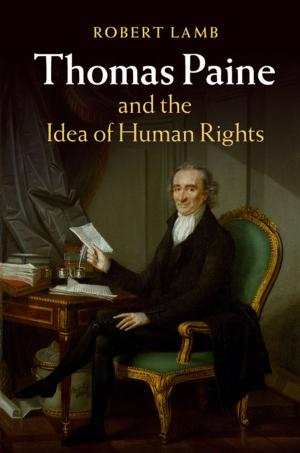Paul's Political Strategy in 1 Corinthians 1–4
Constitution and Covenant
Nonfiction, Religion & Spirituality, Bible & Bible Studies, New Testament, Study| Author: | Bradley J. Bitner | ISBN: | 9781316289495 |
| Publisher: | Cambridge University Press | Publication: | June 25, 2015 |
| Imprint: | Cambridge University Press | Language: | English |
| Author: | Bradley J. Bitner |
| ISBN: | 9781316289495 |
| Publisher: | Cambridge University Press |
| Publication: | June 25, 2015 |
| Imprint: | Cambridge University Press |
| Language: | English |
This volume examines 1 Corinthians 1-4 within first-century politics, demonstrating the significance of Corinth's constitution to the interpretation of Paul's letter. Bradley J. Bitner shows that Paul carefully considered the Roman colonial context of Corinth, which underlay numerous ecclesial conflicts. Roman politics, however, cannot account for the entire shape of Paul's response. Bridging the Hellenism-Judaism divide that has characterised much of Pauline scholarship, Bitner argues that Paul also appropriated Jewish-biblical notions of covenant. Epigraphical and papyrological evidence indicates that his chosen content and manner are best understood with reference to an ecclesial politeia informed by a distinctively Christ-centred political theology. This emerges as a 'politics of thanksgiving' in 1 Corinthians 1:4-9 and as a 'politics of construction' in 3:5-4:5, where Paul redirects gratitude and glory to God in Christ. This innovative account of Paul's political theology offers fresh insight into his pastoral strategy among nascent Gentile-Jewish assemblies.
This volume examines 1 Corinthians 1-4 within first-century politics, demonstrating the significance of Corinth's constitution to the interpretation of Paul's letter. Bradley J. Bitner shows that Paul carefully considered the Roman colonial context of Corinth, which underlay numerous ecclesial conflicts. Roman politics, however, cannot account for the entire shape of Paul's response. Bridging the Hellenism-Judaism divide that has characterised much of Pauline scholarship, Bitner argues that Paul also appropriated Jewish-biblical notions of covenant. Epigraphical and papyrological evidence indicates that his chosen content and manner are best understood with reference to an ecclesial politeia informed by a distinctively Christ-centred political theology. This emerges as a 'politics of thanksgiving' in 1 Corinthians 1:4-9 and as a 'politics of construction' in 3:5-4:5, where Paul redirects gratitude and glory to God in Christ. This innovative account of Paul's political theology offers fresh insight into his pastoral strategy among nascent Gentile-Jewish assemblies.















